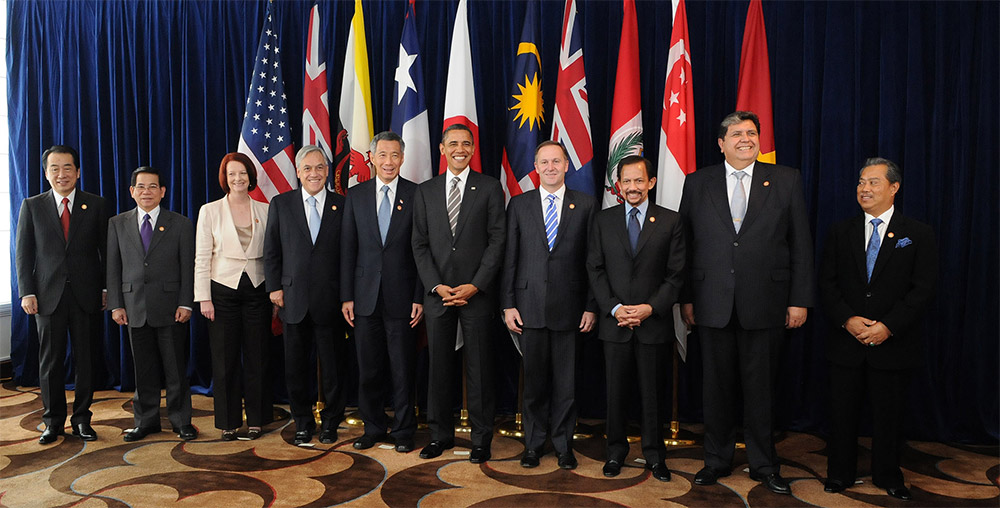Although the general consensus of everyone from Doctors without Borders to privacy advocates is that the Trans Pacific Partnership (TPP) and its European equivalent the Transatlantic Trade and Investment Partnership (TTIP), are bad for everyone but a select few, the contents of them are still rather unknown. However a recent leaked draft of the former of the two secretive trade deals suggests that the United States would not be as aggressive with its DMCA policy as might have been expected.
The TTP and TTIP are both trade deals currently being negotiated between some of the most prominent countries in the world. While on the surface they claim to improve trade, by removing barriers between those nations, traditionally such deals have been horrible for local labourers and the new ones look likely to extend copyright for wealthy corporations, as well as further remove privacy provisions from individuals.
In a recent draft that the Electronic Frontier Foundation was briefed on though, it claims that the DMCA system the USA has pushed in an effort to build a solid notice and takedown system for websites, would not be enforced on participating nations if they already had their own similar system in place.

TPP has been debated for over five years. This image of participating nations was taken in 2010.
Although hardly a big turn around, this is at least a step in the right direction. Countries like Canada and Chile have already existing notification systems, but require judicial oversight if any content is to be forcibly removed from an online entity. This makes the system much less open for abuse, as the current DMCA one is.
Other improvements to the TPP also pushes for those abusing the takedown system to face penalties and charges and for content to be restored online if its removal is found to be invalid. There is also mention of a more limited liability for platform holders when it comes to content uploaded by their users.
Discuss on our Facebook page, HERE.
KitGuru Says: As the EFF points out though, none of these are issues of trade and shouldn't be debated in secretive meetings. They are rules and regulations that affect billions of people world wide and should be discussed openly so that the public can weigh in and admonish politicians that back policies that would negatively affect them.
Image source: Wikimedia
 KitGuru KitGuru.net – Tech News | Hardware News | Hardware Reviews | IOS | Mobile | Gaming | Graphics Cards
KitGuru KitGuru.net – Tech News | Hardware News | Hardware Reviews | IOS | Mobile | Gaming | Graphics Cards


